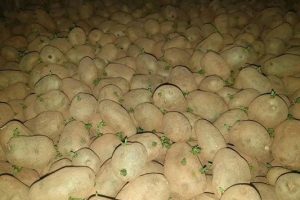
There is a saying by one of the most famous reggae artists. It says, “When the rain falls, it will not fall on one man’s house.” At this very moment, the people of the world in every corner feel the heat that burns the world. People cannot say this is not our problem and we don’t care about the other side. In the world of globalization, no one can escape from any danger that any nation brings to this world.
It has been a little long since it has been started to listen about chaos, killings, lootings, and conflicts throughout the world. However, there are stories that shaken the world. It is because they will bring pressures that people could not hold for so long. A simple example is the current war between Russia and Ukraine. International organizations and countries have been recording the damage and forecasting the aftermath of the war.
As both fighting sides are the hub of exporting essential goods to the world, their conflict adversely affects the world’s economy. Though some countries are far from the battle field and take no side in the war, they still feel the heat of the conflict. The first of many countries who take no side is Ethiopia. The government of Ethiopia sent its sympathy to the people of both countries and wished the war is over soon by tabling the issue.
At this moment, as a result of the war, the price of basic commodities including petroleum hits the highest in history. Some rich countries like The United States of America have reserve resources for times like this. Unfortunately, they still face the challenge that the rest of the world encounters.
In the current climate, Ethiopia is going through the hardest time of its long history. Both internal and external factors have challenged the country in various directions. Countries like Ethiopia those import most of their commodities from abroad are experiencing the worst situation. Due to this and other various circumstances, the government of Ethiopia should focus on other alternatives like import substitution.
Having stayed with a local media, economics lecturer at Addis Ababa University, Berhanu Denu expressed what needs to be done in order to cope with the current economic pressure as a nation. According to the lecturer, it is the best solution for Ethiopia to focus on import substitution. He disclosed that it is important to remember that the nation is importing large amount of commodities from a number of countries.
As mentioned above, countries from all corners of the world import commodities from Russia and Ukraine as they are the main sources of basic commodities especially crop products, petroleum and natural gas. Berhanu also noted that the above mentioned countries are the major providers for Ethiopia’s import goods as well.
The lecturer highlighted that Ethiopia imported edible items and industrial inputs from those countries. To illustrate the fact, Ethiopia imported items worth more than 200 million USD from Ukraine and around 40 million worth of items from Russia in 2020 fiscal year. These figures show that these two countries are the main import suppliers for Ethiopia. Due to the internal conflict in Ethiopia and the war between these two countries, Ethiopia suffers major economic pressure, Berhanu added.
As to the lecturer, there are multiple factors that adversely affect the economy of the country. He further mentioned that the supply chain, price inflation, country’s limited export experience, and shortage of foreign currency the major constraints of the country’s economy. All these are affecting the nation’s investment activities too.
Since there is a viable solution for every problem, in relation to the current economic pressure, the economist pinpointed some solutions that could reduce the pressure. There are some of the key actions to be taken by the government of Ethiopia. Maximizing and expanding its domestic productions and working on substituting imports are the major solutions to cope up with the economic pressure, Berhanu noted.
“It is important to remember that we need to produce the items we mostly import and substitute them with local products. We are purchasing a lot of goods which we could produce domestically and even export rather than importing them,” Berhanu added.
In many occasions, it is stated that Ethiopia is a country with untapped natural resources. As to the economist, it is true that Ethiopia has tremendous potential to produce what the nation is importing. It can produce agricultural and industrial inputs or outputs domestically rather than importing them.
Ethiopia used to imported cereals and wheat from Russia and Ukraine. At this very moment, the people of Ethiopia are witnessing that the government is trying to give domestic solutions for economic inquires. The economist disclosed that the country is working aggressively on uplifting the nation’s capacity of wheat production by engaging farmers in dry season wheat production. Such act will be one of those options that empower the country to cope up with the economic pressure. In addition, minimizing the consumption and diversifying its trade destination are also other options that the government can give a try.
The economist has also shared his experience. He said, “I had an opportunity to visit one site of wheat production where cluster approaches are being used.” He also added that a wide range of wheat production is in a pipeline. Most of the regions are in the process of this production. It is estimated that about 60 to 65 percent of the required wheat input has been substituted by domestic production. The lecturer added, “I am sure we will be able to fully stop wheat importation and even be able to export some in the coming few years.”
There are number of actions that the government of Ethiopia should take, as to the economist. He stated that the government must eliminate internal barriers and elevate domestic production. Besides, there has to be safe transportation of items so as to reduce the impact of economic disruption.
In addition, the government should give special attention to secure the trade routes in the country. In some parts of the country, there is a security and stability threat. The economist also noted that at this time, it is difficult to transport goods from one place to another securely. People are experiencing that they are dealing with hard times to transport items from local production areas to the market places where they find their customers. At this point, the government should remove such constraints and take the necessary measurements to secure the routes.
It is also true that any kind of development is entertained when peace is secured. As to Berhanu, the absence of peace in the country affects the whole activity in it. The problems like shortage of domestic supply that Ethiopians are facing right now are because of the absence of peace. These constraints surely down press the economic progress of the country.
To wrap up the idea, escalating local production and substitute what the country is importing surely repeal the economic burden of the country. Improving the country’s security definitely boost the economic activity of the nation. The government and responsible stakeholders should work in synchronizing way to resist the economic pressures. In addition, local products should be appreciated in the market, it was learned.
Import substitution including agricultural products is essential to manage the economic pressure
BY DANIEL ALEMAYEHU
The Ethiopian Herald 11 May 2022





